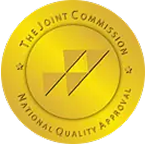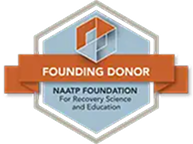Addiction and mental illness often go hand in hand. Indeed, SAMHSA (Substance Abuse and Mental Health Services Administration) estimates that almost 9 million adults suffer from both addiction and mental illness – co-occurring disorders1. They further estimate that only about 7% of those adults receive appropriate care for both conditions.
A HUGE THANK YOU to everyone (and their supporters) who raised money for Fellowship Hall via The Human Race! The total amount raised was $7,850.00! Not bad for our first year! Thank you to everyone who was able to come out for the walk; we couldn’t have asked for better weather! We
All of us here at Fellowship Hall are thrilled to introduce our new Medical Director, Dr. Mike Washo. In fact, during his residency at Duke University Hospital in 2006, Dr. Washo rotated through the joint Fellowship Hall program. Now, almost a decade later, he has taken the helm of our
This April marks Alcohol Awareness Month, an important time for us to reflect on the damage that alcohol abuse can cause to the individual and their families and friends. We can also look at the opportunities available to us, collectively, to eradicate this insidious disease. April 9th, today, is also National
There’s quite a bit we know about smoking. Its effects are wide ranging and it damages organs in virtually every part of the body. Beyond being a primary cause of various cancers, causing COPD and sapping oxygen from the blood, smoking also has a profound effect on the brain. And
Understanding the Appropriateness of Outpatient versus Inpatient Residential Treatment
Category: Addiction, Levels of Care, Mental Health
Many addiction treatment programs now have the option for patients to receive care either in an outpatient setting or residential/impatient setting. While they both constitute addiction treatment, they have very different purposes that require a thorough evaluation by an addiction professional. The key variables that determine the appropriateness of inpatient
The New Year and Setting Goals
Category: Addiction, Introductory, Relapse
It may sound like a cliché, but a new year really does bring the opportunity to start fresh, become healthier and change our lives. As with any major decision concerning our health or wellness, it often takes a tipping point to begin that change. Even though January 1 has the
We all know of someone who drinks a little too much and holiday times can shine a spotlight on such behavior. The tendency, jokingly or not, is to brand them as an alcoholic. New research from the Centers for Disease Control and Prevention (CDC) as well as the Substance Abuse
The Challenges of The Holidays
Category: Addiction, Families, Mental Health
The holiday season presents particular challenges to those suffering from substance abuse and addiction. While it would be ideal for the holidays to be a time of unfettered enjoyment, relaxation and downtime from the work and stresses of life, it is not always so. For many people, the holidays may
Many prospective patients, parents and loved ones of those addicted to substances such as alcohol or drugs often wonder about the difference between detox and addiction treatment. Even if they understand that they are two distinct levels of care, they may not understand what criteria leads to their loved one






